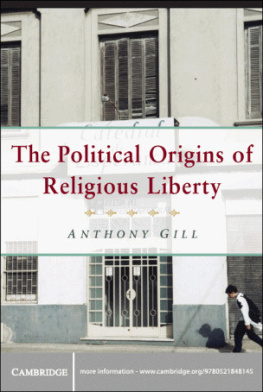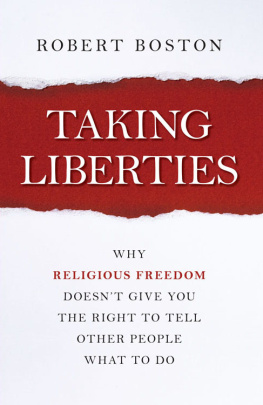PERSECUTION & TOLERATION
The Long Road to Religious Freedom
Religious freedom has become an emblematic value in the West. Embedded in constitutions and championed by politicians and thinkers across the political spectrum, it is to many an absolute value, something beyond question. Yet how it emerged, and why, remains widely misunderstood. Tracing the history of religious persecution from the Fall of Rome to the present-day, Noel Johnson and Mark Koyama provide a novel explanation of the birth of religious liberty. This book treats the subject in an integrative way by combining economic reasoning with historical evidence from medieval and early modern Europe. The authors elucidate the economic and political incentives that shaped the actions of political leaders during periods of state building and economic growth.
Noel Johnson is Associate Professor of Economics at George Mason University and a Senior Research Fellow at the Mercatus Center.
Mark Koyama is Associate Professor of Economics at George Mason University and a Senior Scholar at the Mercatus Center. He was a 20172018 National Fellow at Stanford Universitys Hoover Institution.
CAMBRIDGE STUDIES IN ECONOMICS, CHOICE, AND SOCIETY
Founding Editors
Timur Kuran, Duke University
Peter J. Boettke, George Mason University
This interdisciplinary series promotes original theoretical and empirical research as well as integrative syntheses involving links between individual choice, institutions, and social outcomes. Contributions are welcome from across the social sciences, particularly in the areas where economic analysis is joined with other disciplines such as comparative political economy, new institutional economics, and behavioral economics.
Books in the Series:
TERRY L. ANDERSON and GARY D. LIBECAP
Environmental Markets: A Property Rights Approach
MORRIS B. HOFFMAN
The Punishers Brain: The Evolution of Judge and Jury
PETER T. LEESON
Anarchy Unbound: Why Self-Governance Works Better Than You Think
BENJAMIN POWELL
Out of Poverty: Sweatshops in the Global Economy
CASS R. SUNSTEIN
The Ethics of Influence: Government in the Age of Behavioral Science
JARED RUBIN
Rulers, Religion, and Riches: Why the West Got Rich and the Middle East Did Not
JEAN-PHILIPPE PLATTEAU
Islam Instrumentalized: Religion and Politics in Historical Perspective
TAIZU ZHANG
The Laws and Economics of Confucianism: Kinship and Property in Preindustrial China and England
ROGER KOPPL
Expert Failure
MICHAEL C. MUNGER
Tomorrow 3.0: Transaction Costs and the Sharing Economy
CAROLYN M. WARNER, RAMAZAN KILIN, CHRISTOPHER W. HALE and ADAM B. COHEN
Generating Generosity in Catholicism and Islam: Beliefs, Institutions, and Public Goods Provision
RANDALL G. HOLCOMBE
Political Capitalism: How Political Influence is Made and Maintained
VERNON L. SMITH AND BART J. WILSON
Humanomics: Moral Sentiments and the Wealth of Nations for the Twenty-First Century
PAUL DRAGOS ALIGICA
Public Entrepreneurship, Citizenship, and Self-Governance
Persecution & Toleration
The Long Road to Religious Freedom
NOEL D. JOHNSON
George Mason University, Virginia
MARK KOYAMA
George Mason University, Virginia
University Printing House, Cambridge CB2 8BS, United Kingdom
One Liberty Plaza, 20th Floor, New York, NY 10006, USA
477 Williamstown Road, Port Melbourne, VIC 3207, Australia
314321, 3rd Floor, Plot 3, Splendor Forum, Jasola District Centre, New Delhi 110025, India
79 Anson Road, #0604/06, Singapore 079906
Cambridge University Press is part of the University of Cambridge.
It furthers the Universitys mission by disseminating knowledge in the pursuit of education, learning, and research at the highest international levels of excellence.
www.cambridge.org
Information on this title: www.cambridge.org/9781108425025
DOI: 10.1017/9781108348102
Noel D. Johnson and Mark Koyama 2019
This publication is in copyright. Subject to statutory exception and to the provisions of relevant collective licensing agreements, no reproduction of any part may take place without the written permission of Cambridge University Press.
First published 2019
Printed in the United Kingdom by TJ International Ltd. Padstow Cornwall
A catalogue record for this publication is available from the British Library.
Library of Congress Cataloging-in-Publication Data
Names: Johnson, Noel D., author.
Title: Persecution & toleration : the long road to religious freedom / Noel D. Johnson, George Mason University, Virginia, Mark Koyama, George Mason University, Virginia.
Other titles: Persecution and toleration
Description: New York : Cambridge University Press, 2018.
Identifiers: LCCN 2018038012 | ISBN 9781108425025
Subjects: LCSH: Religion and state. | Freedom of religion. | Religious tolerance.
Classification: LCC BL65.S8 J64 2018 | DDC 323.44/2dc23
LC record available at https://lccn.loc.gov/2018038012
ISBN 978-1-108-42502-5 Hardback
ISBN 978-1-108-44116-2 Paperback
Cambridge University Press has no responsibility for the persistence or accuracy of URLs for external or third-party internet websites referred to in this publication and does not guarantee that any content on such websites is, or will remain, accurate or appropriate.
Contents
Figures
Tables
Preface
Today many liberal values are under pressure as a result of tensions arising from a complex combination of economic stress, populism, and large-scale immigration. Religious freedom is a crucial component of liberalism. Yet both ordinary language and judicial interpretations of what this freedom entails and what it means to be tolerant are increasingly contested.
In this environment, it is ever more important to understand the origins and development of liberal values such as religious freedom. This is the aim of our book. We seek to understand the rise of religious freedom in Western Europe from the Middle Ages to the modern age.
In so doing we provide a history of the rise of liberalism and of modern states. The Canadian philosopher Charles Taylor describes the present as A Secular Age (). Church attendance is falling, not only in Western Europe where the decline has been evident for decades, but also more recently in North America. But this should not obscure the importance of religion for understanding either past societies or the present. Not least, the freedom of individuals to choose their own religious faith is crucial to the more general principles of freedom of thought and freedom of conscience. To put it bluntly, to understand the rise of liberalism, one has to study the history of religious freedom. And to understand religious freedom, one needs to study the historical relationship between religion and the state.
Religious freedom did not exist in the premodern world. Because of the role religion played in upholding political order by offering legitimacy to rulers, political elites sought control over religious practice. In the absence of genuine religious freedom, there was at best what we call conditional toleration .

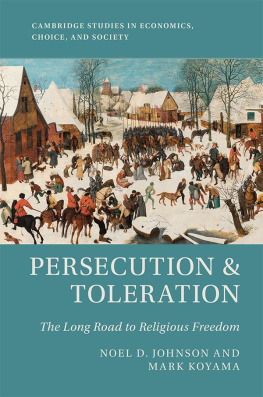

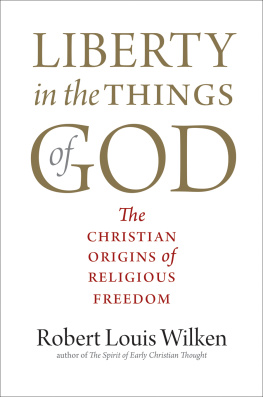

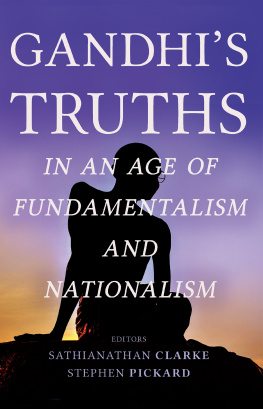
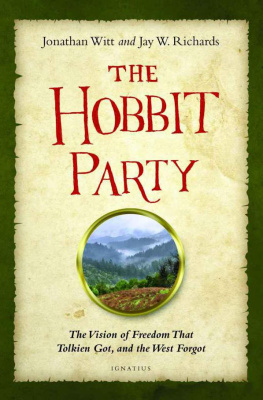
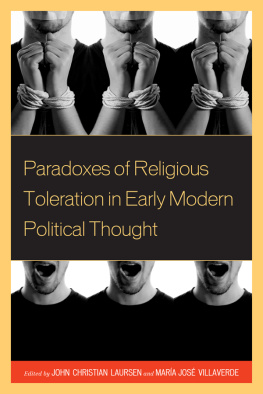
![Blackford - Freedom of religion [and] the secular state](/uploads/posts/book/167779/thumbs/blackford-freedom-of-religion-and-the-secular.jpg)
